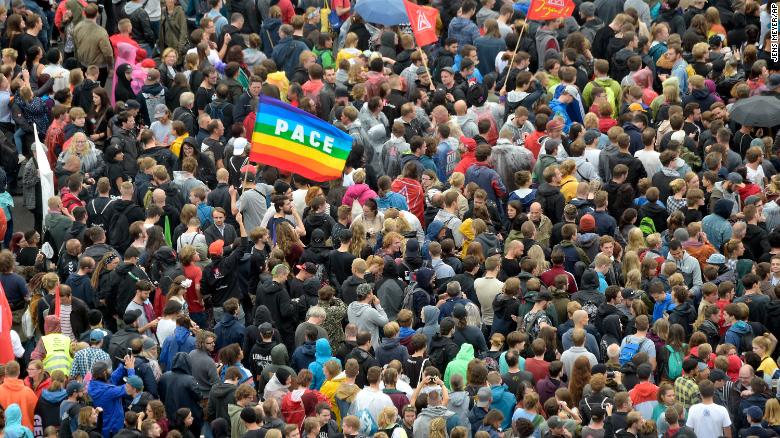Immigration officials in
have been using DNA testing and ancestry websites to try to determine migrants’ nationality, according to the Canada Border Services agency.
The agency has not kept statistics on how often the tools had been applied, but they were being used on those who run afoul of the country’s immigration laws and “when other avenues of investigation have been exhausted,” a spokesperson for the CBSA told the Guardian.
Vice News
the story after speaking to two immigration lawyers whose clients had been investigated through DNA tests submitted to FamilytreeDNA.com.
The CBSA described the tools “as part of a suite of investigative techniques” used to ascertain a person’s identity.
“DNA testing assists the CBSA in determining identity by providing indicators of nationality thereby enabling us to focus further lines of investigation on particular countries,” the spokesperson said.
The agency said it had obtained consent from the migrants before their information was submitted to the sites but declined to offer more details. “The CBSA does not publicly discuss the mechanics of its investigative techniques in a public forum, as doing so could render them ineffective.”
Subodh Bharati, a lawyer, expressed concerns over the admission. He flagged the issue to media outlets earlier this year, after authorities cited DNA testing and an ancestry site to speculate that his client – a Liberian national who has lived in
since the 1990s – was actually from Nigeria.
His client was asked to undergo the DNA test while in detention, as the threat of being deemed non-cooperative loomed, said Bharati. “Can a person really consent to giving his DNA while he’s in a maximum security prison?”
The agency’s actions have also raised concerns about the privacy of the data held by these sites. Bharati said he was aware of at least two people who had used FamilytreeDNA.com, including someone in the UK, who had been contacted by Canadian immigration officials.
Amid Liberia’s refusal to repatriate its nationals, the information from ancestry sites was now being used to argue his client should be deported to Nigeria – an argument that ignored the fact that ancestry does not always line up with nationality, said Bharati.
“My DNA would say that I’m from India but I was born in Canada,” he pointed out. “It’s so obvious that this can’t give anybody’s nationality, is there some other reason that they’re collecting DNA? I don’t know.”
He said he had heard of two other similar cases involving migrants in Canada, prompting broader questions over what measures were in place to protect people’s confidentiality. “What protocols are they following, if there are any?”
Bharati described it as one of the
, which has the authority to detain non-citizens deemed to be a flight risk, who pose a threat to public safety or whose identities cannot be confirmed.
A lack of transparency and oversight mars the system, resulting in what critics have described as a “legal black hole”. Since 2000,
, including five who were thought to have died of natural causes and three by suicide. Several deaths have been attributed to unknown causes.
Advertisement
FamilyTreeDNA said it had not worked directly with Canadian law enforcement. The company added in a statement to Reuters that it had “no knowledge of Canadian law enforcement or its border agency using the FTDNA platform for the purpose of gathering migrant DNA to determine nationality.”
Earlier this year the use of ancestry sites by authorities burst into view south of the border, after investigators in California said they had
by comparing the suspect’s DNA to data gathered by genealogy websites. The former police officer Joseph DeAngelo, 72, has since been charged in connection with a dozen murders dating back as far as 1976.

